Tourism in Sri Lanka is back. We had 1.5 million visitors in just the first three months of 20251. Hotels are busy again, which means everyone’s scrambling to restock after years of dealing with supply chain headaches.
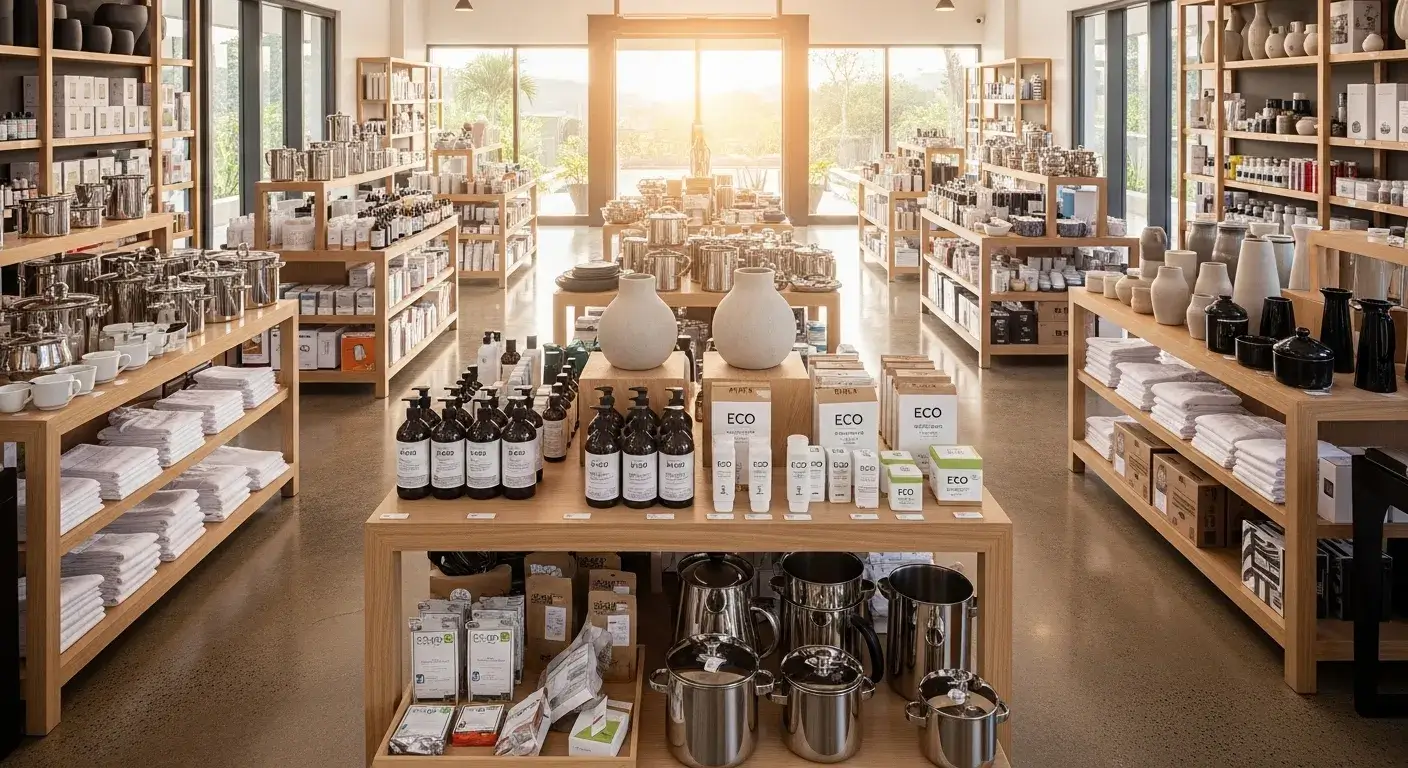
I’ve been helping hotels with procurement for years now, and the question I keep hearing is basically: "Who won’t screw me over on price and actually deliver on time?"
Fair question. So here’s what I’ve put together – a realistic look at 10 suppliers who are actually doing good work right now. I’ll tell you what they’re good at, what they charge (real numbers, not "contact us for pricing"), and when you should pick one over another.
What You’ll Find Here
Look, I’m not going to waste your time. Here’s what’s in this guide:
- Contact info and real pricing for 10 solid suppliers
- A simple way to figure out which one fits your hotel
- How to negotiate without getting taken advantage of (you can usually knock 15-20% off if you know what you’re doing)
- What’s actually changing in the market right now
- Straight answers to the questions everyone asks but nobody wants to admit they don’t know
I’ve also included some warnings about supplier problems I see hotels run into all the time.
Let’s get into it.
What Actually Matters When Picking a Supplier
Yeah, price matters. But I’ve watched too many hotels go with the cheapest option and regret it three months later.
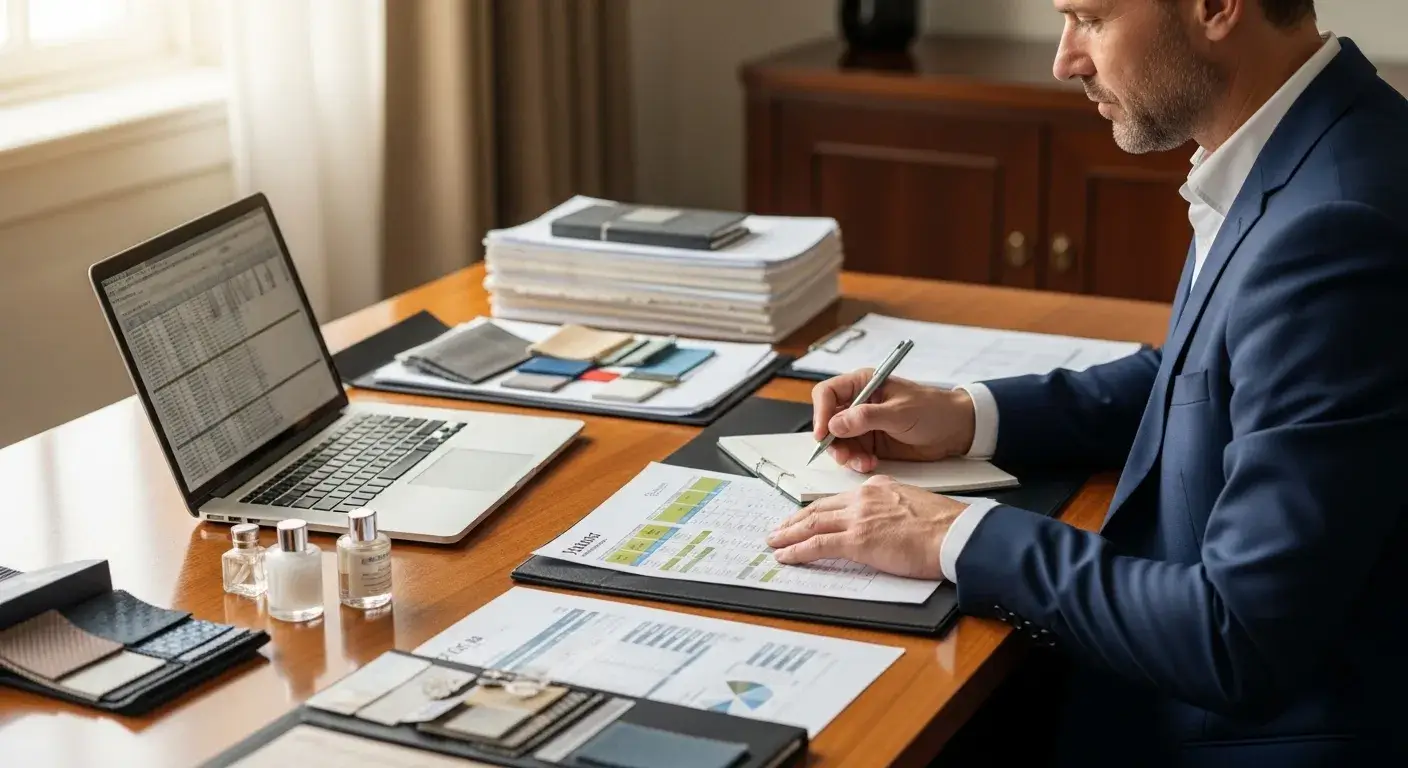
Here’s what I pay attention to:
Are They Making It Here or Importing It?
Sri Lankan manufacturers are usually 20-25% cheaper than importers. Plus they’re faster – you’re looking at a few days instead of over a month.
Import duties went up last year. Like, way up – 30% on a lot of stuff. Guess who pays for that? You do.
Do They Actually Have Certifications or Just Say They Do?
Every supplier claims they’re "eco-friendly" now. But do they have GOTS or ISO certification2? Because those are verified by actual third parties.
And yeah, guests do care about this stuff. I’ve seen it in reviews.
Can Small Hotels Even Afford Their Minimums?
Not everyone can order a thousand units at once. Good suppliers start around 100-200 units.
If you’re a big chain that needs your logo on everything, they should handle that too.
What Happens When Something Goes Wrong?
Because something will go wrong. Equipment breaks. Linens fall apart faster than you expected.
Decent suppliers offer warranties – anywhere from 6 months to 10 years depending on what you’re buying.
I know a hotel that had ovens fail during peak season. The supplier replaced them under warranty. Saved them around 400,000 rupees and a lot of angry chef tantrums.
The 10 Suppliers You Should Know About
I’ve grouped these by what they actually do. Easier to find what you need that way.
The Full-Service Ones
These guys do multiple things. Good if you hate managing ten different vendor relationships.
1. Girindhi International Hotel Suppliers
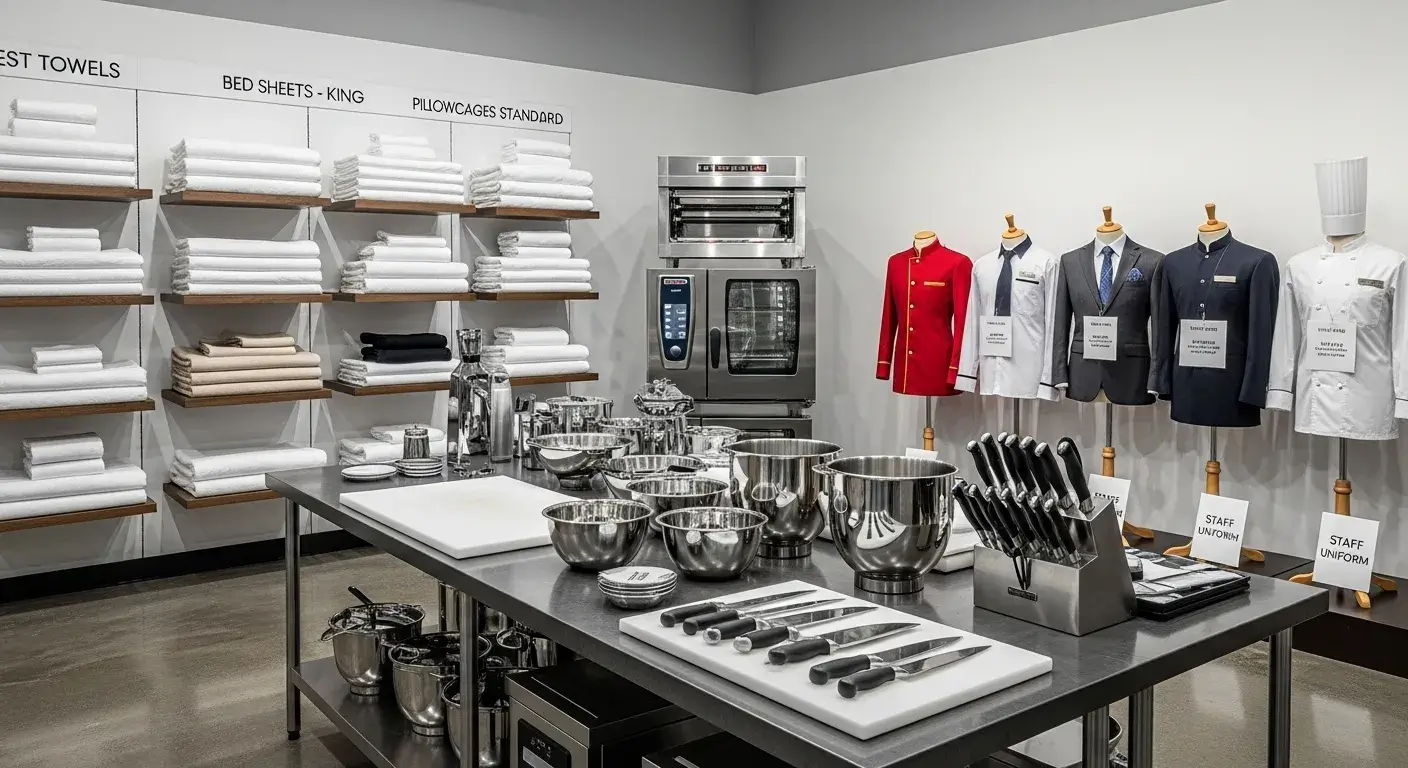
They’ve been around for over 20 years. Do everything from bed sheets to kitchen equipment.
What you can get:
- Hotel equipment (fridges, dishwashers, that kind of thing)
- Kitchen stuff and dishes
- Uniforms and linens
- They’ll track down specialty items if you need something weird
Why you’d use them:
- They’ve been doing this forever
- Have connections with international brands
- Can find things other suppliers don’t stock
What it costs:
- Middle to high range
- Linens run 180,000 to 450,000 rupees per 100 sets
- Kitchen setup will be 3 to 12 million
Makes sense for: Hotels that want one main supplier instead of five
How to reach them: girindhihotelsuppliers.lk
Real talk: If you’re ordering from multiple categories, push for a bulk discount. I’ve gotten 15% off doing this. They have the margin to give it.
2. Hotel Emporium
These guys position themselves as end-to-end. They’ll handle importing, logistics, even repairs.
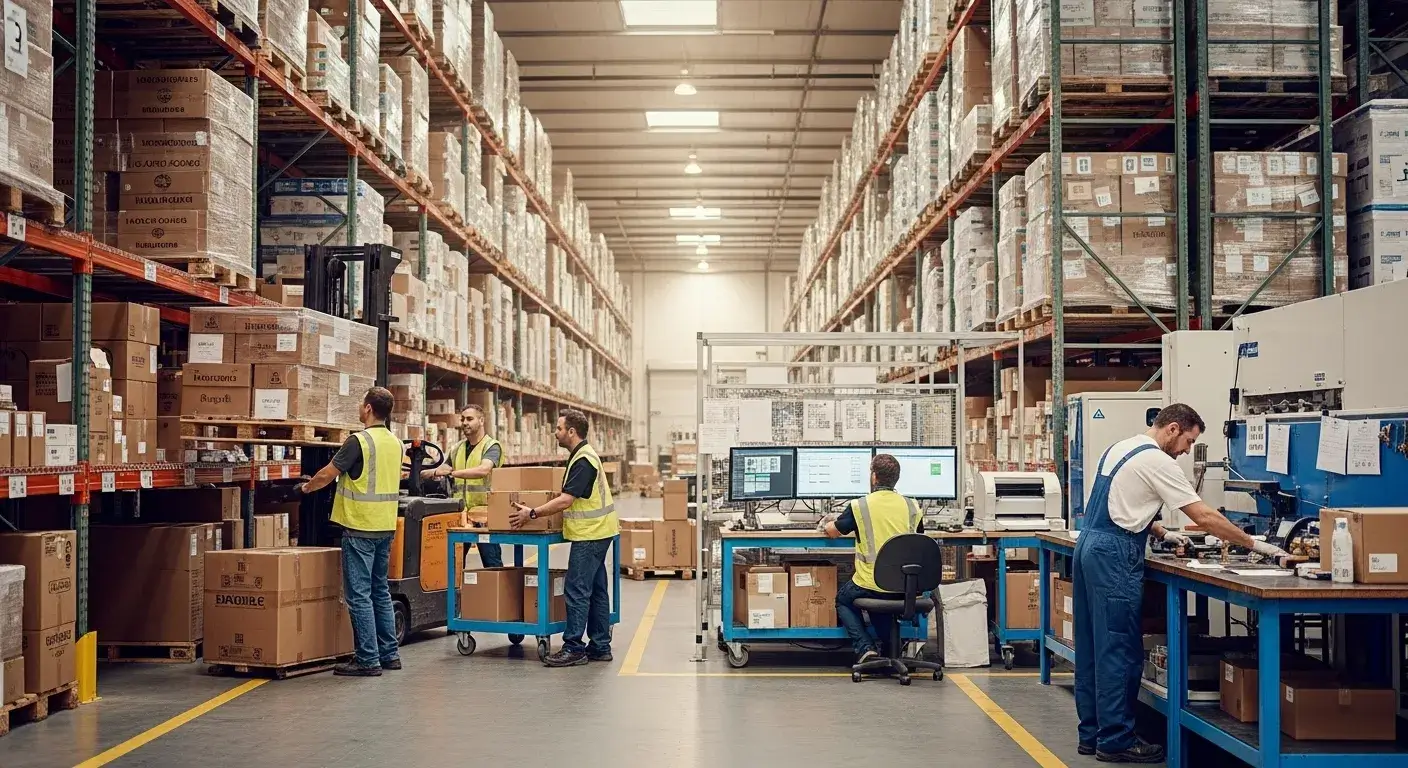
What you can get:
- Guest room stuff (cheap to fancy)
- Restaurant equipment and glasses
- Spa supplies
- They have repair people
Why you’d use them:
- Import logistics help if you want specific international brands
- In-house repairs mean less downtime
- Range from budget to luxury
What it costs:
- Amenities: 35,000 to 140,000 per 100 units
- Equipment varies a lot
Makes sense for: If you’re importing brands or need maintenance backup
How to reach them: htlemporiumlk.com
Real talk: Their repair service is actually useful. Most people don’t use it enough.
3. Legends Hotel Supplies
Official distributor for big global brands. Means you’re getting the real thing, not knockoffs.
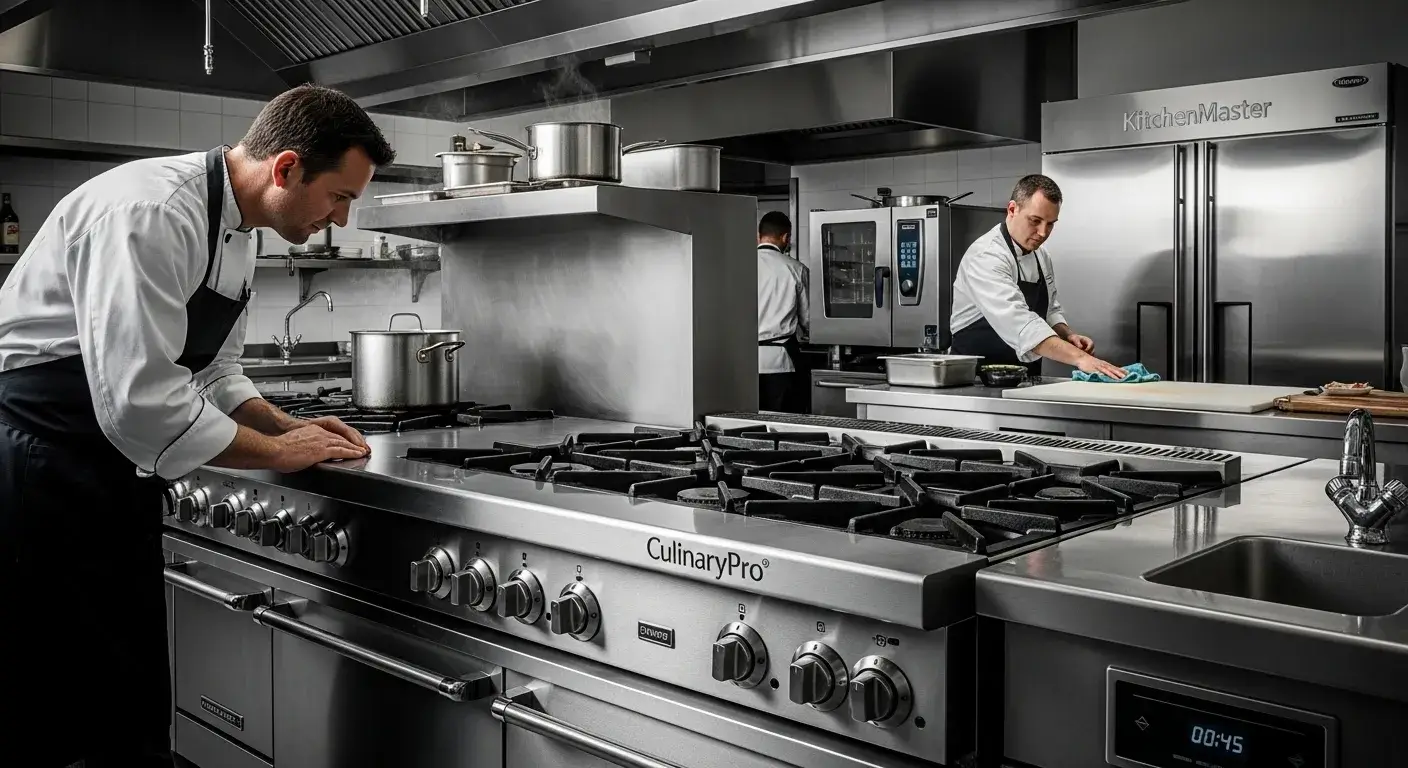
What you can get:
- Industrial kitchen gear
- Commercial fridges and freezers
- Restaurant supplies
- Actual brand-name products
Why you’d use them:
- Zero risk of fake products
- Parts are always in stock
- They have tech support
- Deliver anywhere on the island
What it costs:
- Kitchen setups: 3 to 10 million
- Smaller stuff: 50,000 to 200,000
Makes sense for: When you need brand reliability and long-term support
How to reach them: legendshs.com or call +94-114-388-866
Real talk: Their service contracts are worth it for busy kitchens. One equipment failure during high season costs way more than a year of maintenance.
The Amenities People
These focus on the stuff guests actually see and use.
4. Global Hotel Supplies
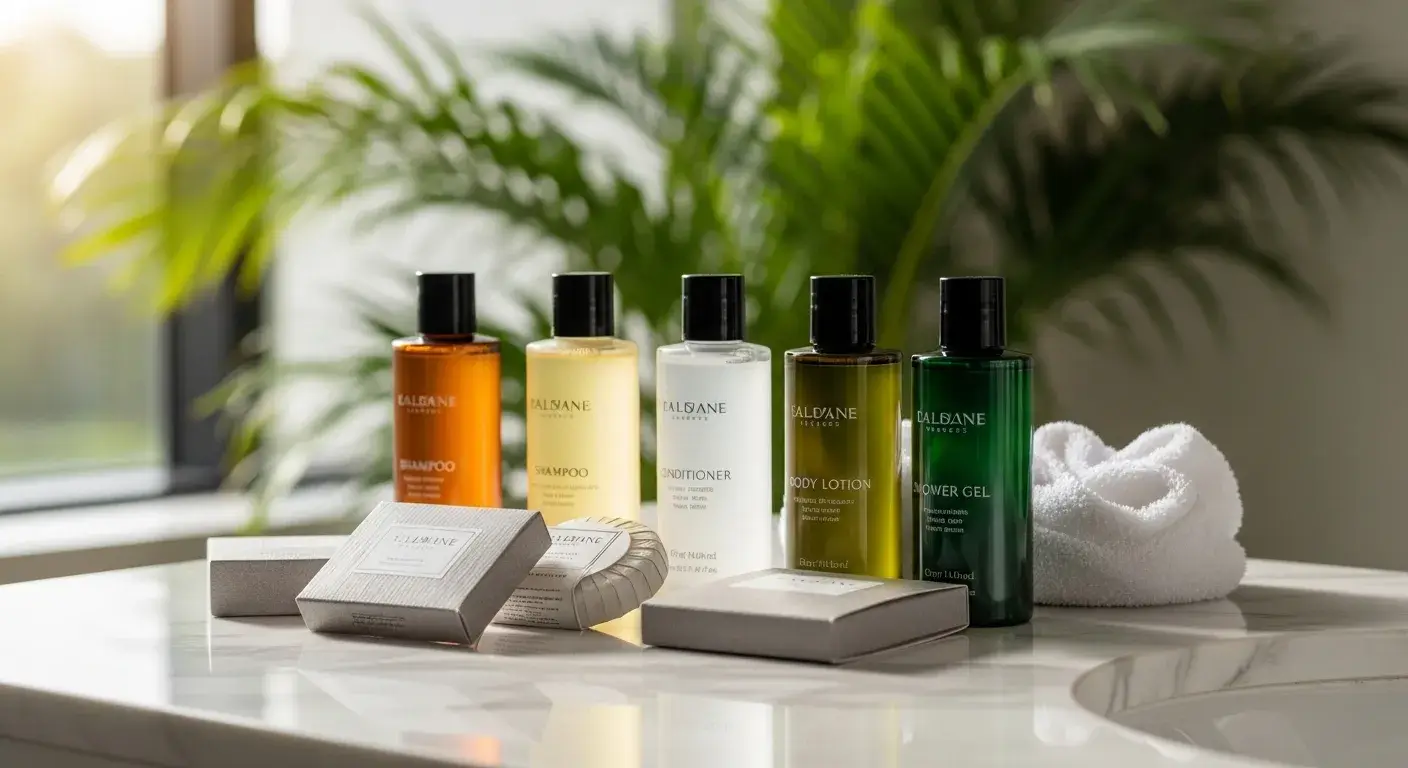
One of the bigger amenity manufacturers here. They export to Maldives and Seychelles, which tells you something about their quality.
What you can get:
- Toiletries (shampoo, conditioner, all that)
- In-room kits (toothbrush, comb, razor)
- Natural formulas without parabens
- Custom branding
Why you’d use them:
- Scale keeps prices reasonable
- Export-level quality
- Natural ingredients if that’s your thing
- Proven track record
What it costs:
- 50,000 to 150,000 per 100 amenity sets
- Custom packaging adds maybe 10-15%
Makes sense for: Mid-size to large hotels
How to reach them: globalhotelsupply.com or +94-112-789-012
Real talk: Get samples of their paraben-free line. Guests can tell the difference, and it doesn’t cost more.
5. Amami (HotelSupplies.lk)
Handmade amenities using local ingredients. Been doing this for over 20 years.
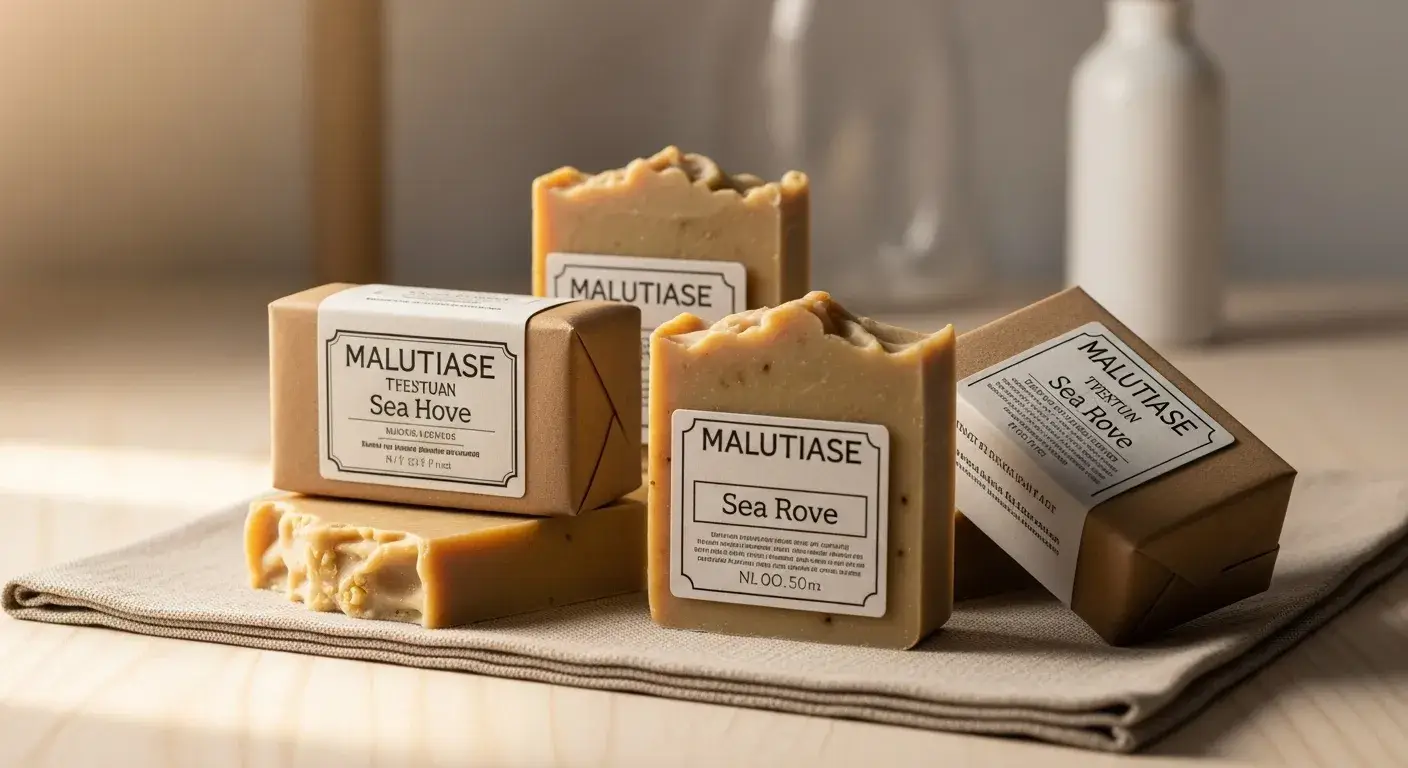
What you can get:
- Handmade soaps and lotions
- Natural stuff (coconut, ayurvedic herbs)
- Custom packaging
- All the health compliance stuff
Why you’d use them:
- Quality is really good
- Local ingredients make a nice story for guests
- Work with small properties
- Luxury resorts like them
What it costs:
- 40,000 to 130,000 per 100 units
Makes sense for: Boutique hotels and luxury places pushing the local angle
How to reach them: hotelsupplies.lk or +94-76-123-4567
Real talk: Just mentioning it’s "made in Sri Lanka" adds value. Costs you nothing.
6. Venture Hotel Supplies
First ones to really do sustainable amenities here. They launched Sri Lanka’s first eco toothbrush.
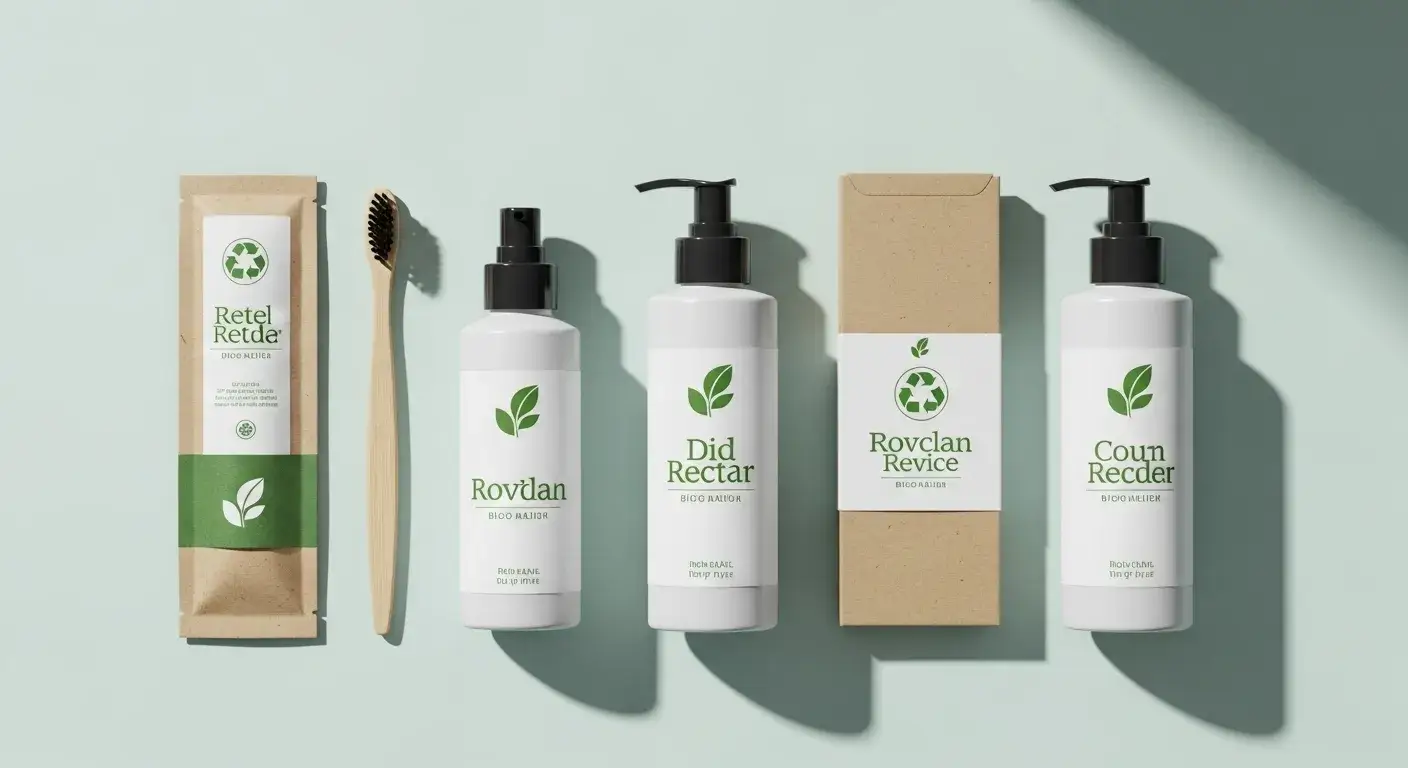
What you can get:
- Zero-waste amenity lines
- Sustainable toothbrushes, combs
- Biodegradable packaging
- GOTS-certified stuff
- Custom designs
Why you’d use them:
- Actually lead on sustainability
- Have real GOTS certification
- Big chains use them
- Always trying new things
What it costs:
- 40,000 to 120,000 per 100 units
Makes sense for: Hotels going for eco-conscious travelers or green certifications
How to reach them: venturehs.com or +94-112-345-678
Real talk: The certified products help with green tourism ratings. Costs about 10% more but can be worth it.
Kitchen Equipment Guys
Your back-of-house needs reliable stuff or your margins disappear fast.
7. Nidro Supply
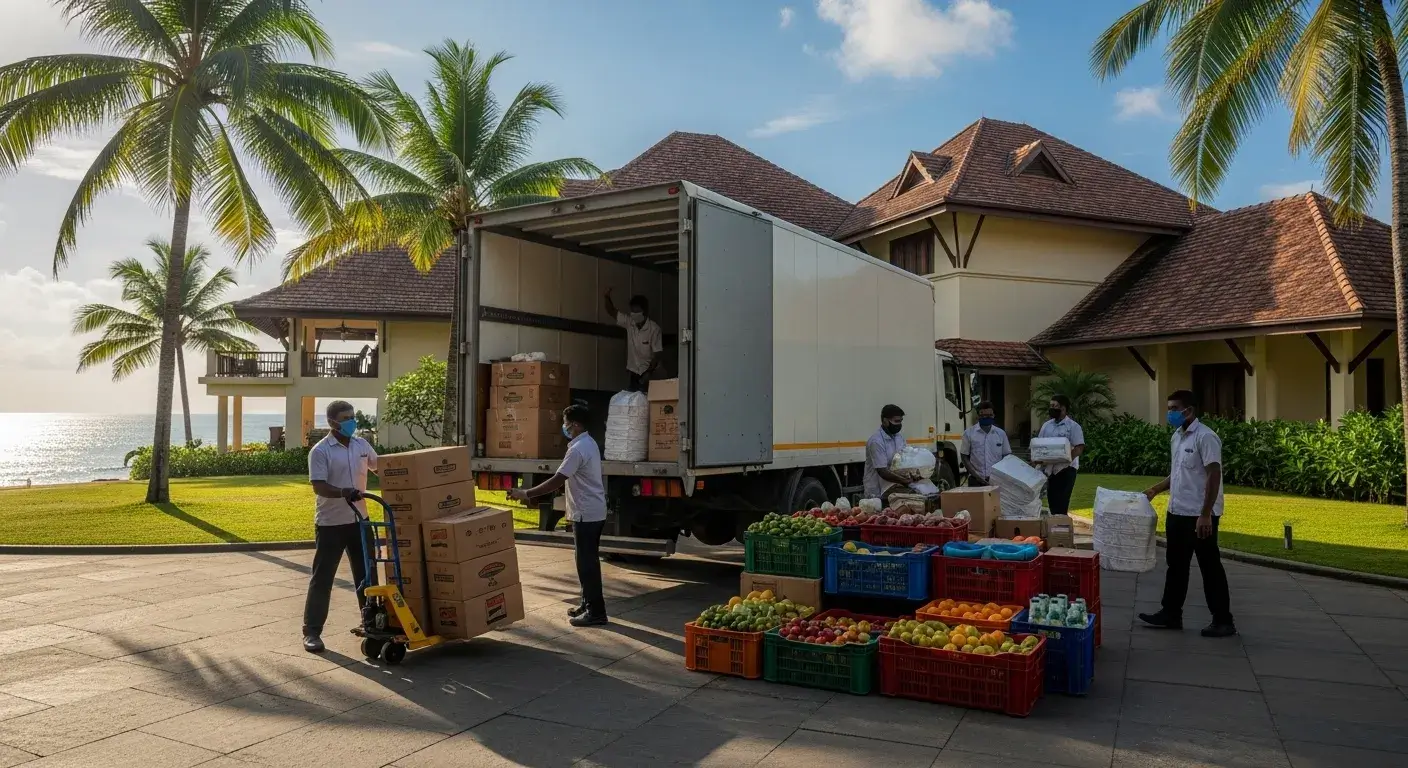
They specialize in supply chain for island resorts. Work in Sri Lanka, Maldives, Seychelles.
What you can get:
- Fresh produce logistics
- Specialty Sri Lankan products
- Full procurement services
- Fast delivery
- Custom supply chain setup
Why you’d use them:
- They understand island logistics
- Know how to handle fresh produce
- Good for remote locations
- Track record in Maldives
What it costs:
- Depends on what you need
- Competitive on fresh stuff
- Premium for specialty items
Makes sense for: Remote resorts and anyone worried about fresh produce
How to reach them: nidro-lanka.com
Real talk: If you’re in Jaffna or somewhere remote, these guys get it. They’ve dealt with worse in the Maldives.
8. BlueHill Hotel Supplies
Equipment with actually good customer service.
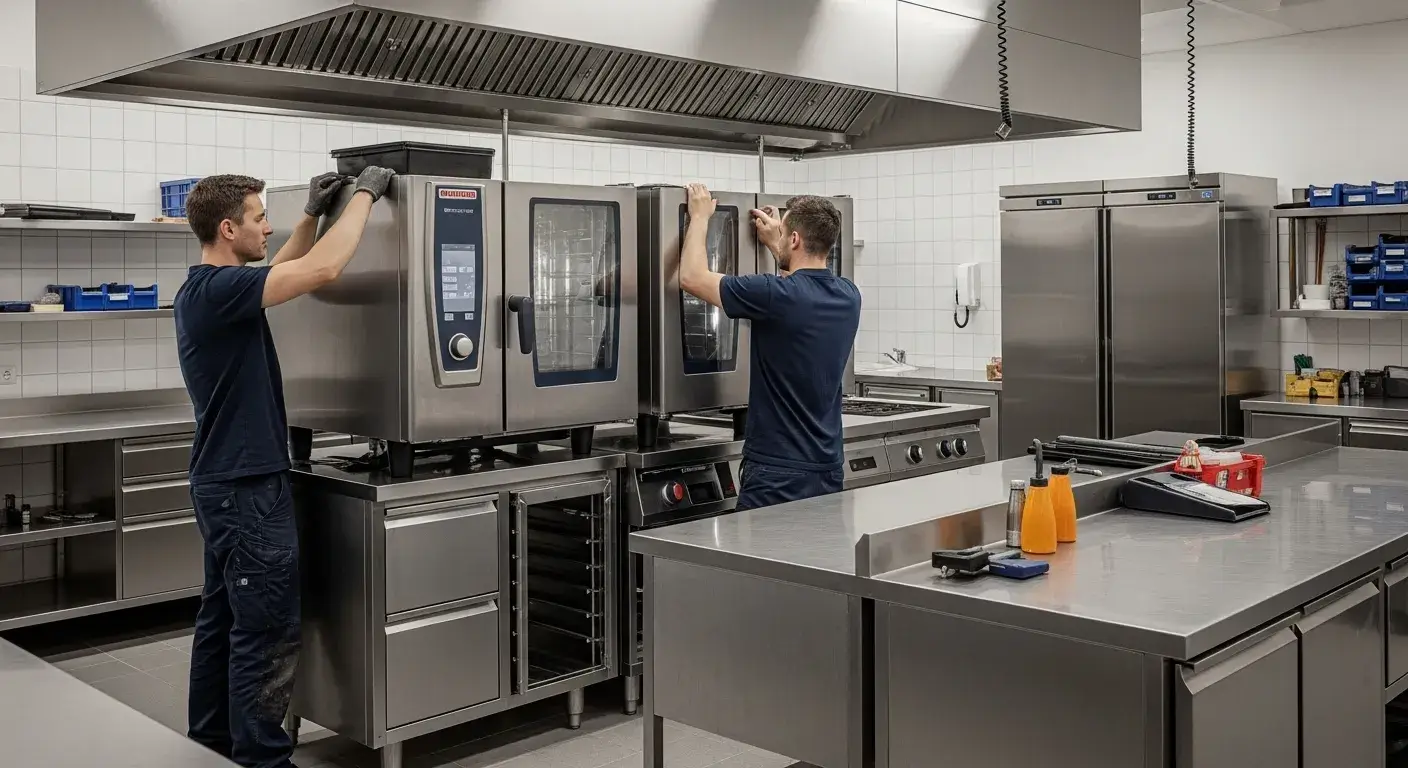
What you can get:
- Kitchen equipment (everything)
- Fast delivery
- 30-day returns (unusual in this business)
- Product advice
- Installation
Why you’d use them:
- Customer service is solid
- Returns policy is rare and useful
- They’ll help you choose right
- Go anywhere on the island
What it costs:
- Kitchen setups: 2.5 to 9 million
- Individual items: 30,000 to 500,000
Makes sense for: First-timers or if you’re upgrading gradually
How to reach them: bluehill.lk
Real talk: That 30-day return is clutch during soft openings. Test everything before you’re committed.
The Specialists
When you need the best in one specific thing.
9. K&K Hotel Products
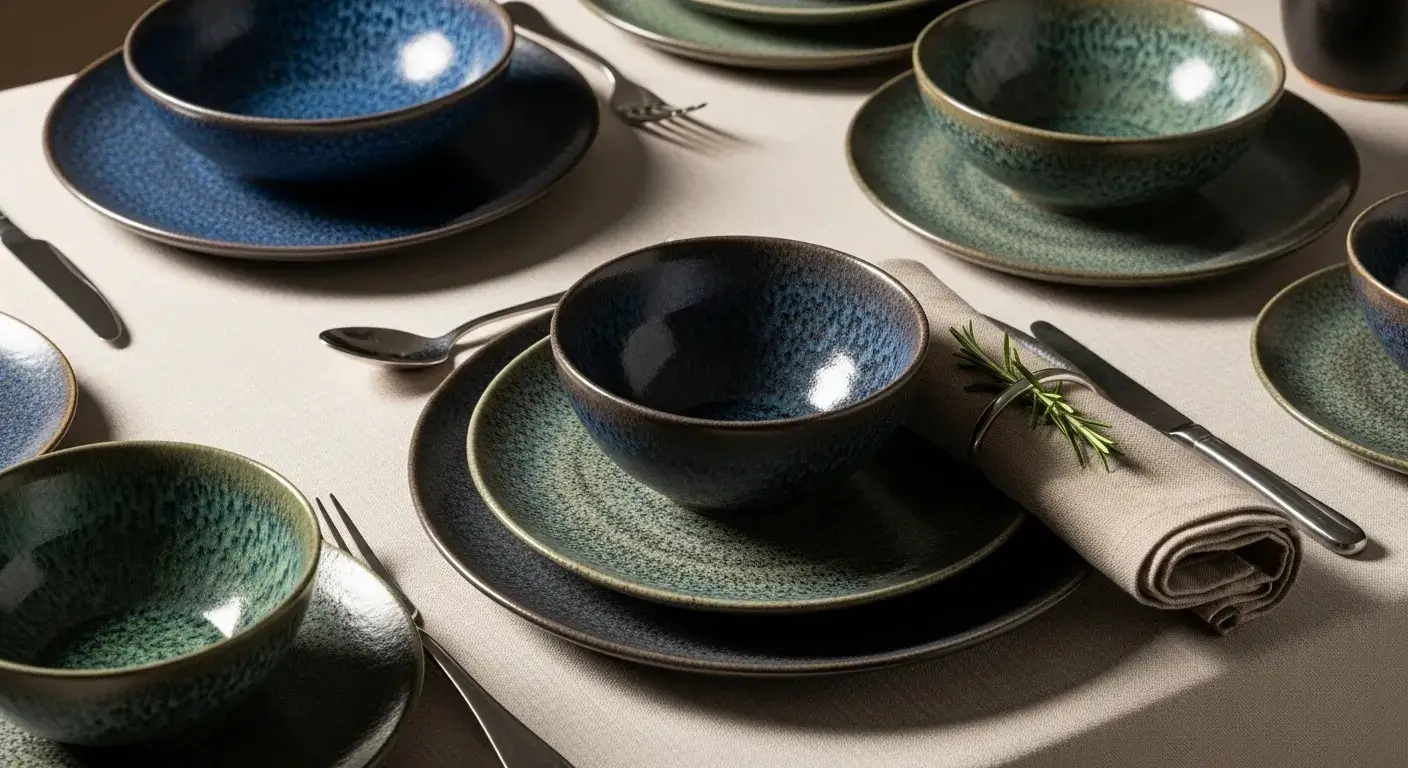
Artisanal ceramics and decorative stuff. Work with boutique and upscale places.
What you can get:
- Custom ceramic dinnerware
- Lobby decoration pieces
- Bathroom accessories
- Design consultation
Why you’d use them:
- Luxury level
- Innovative designs
- Makes your place memorable
- Work with interior designers
What it costs:
- Premium pricing
- Custom pieces: 50,000 to 300,000 per set
Makes sense for: Upscale hotels that want distinctive design
How to reach them: kandkhotelproducts.com
Real talk: Custom stuff takes 6-8 weeks. Talk to them early if you’re on a timeline.
10. Hospitality Technology
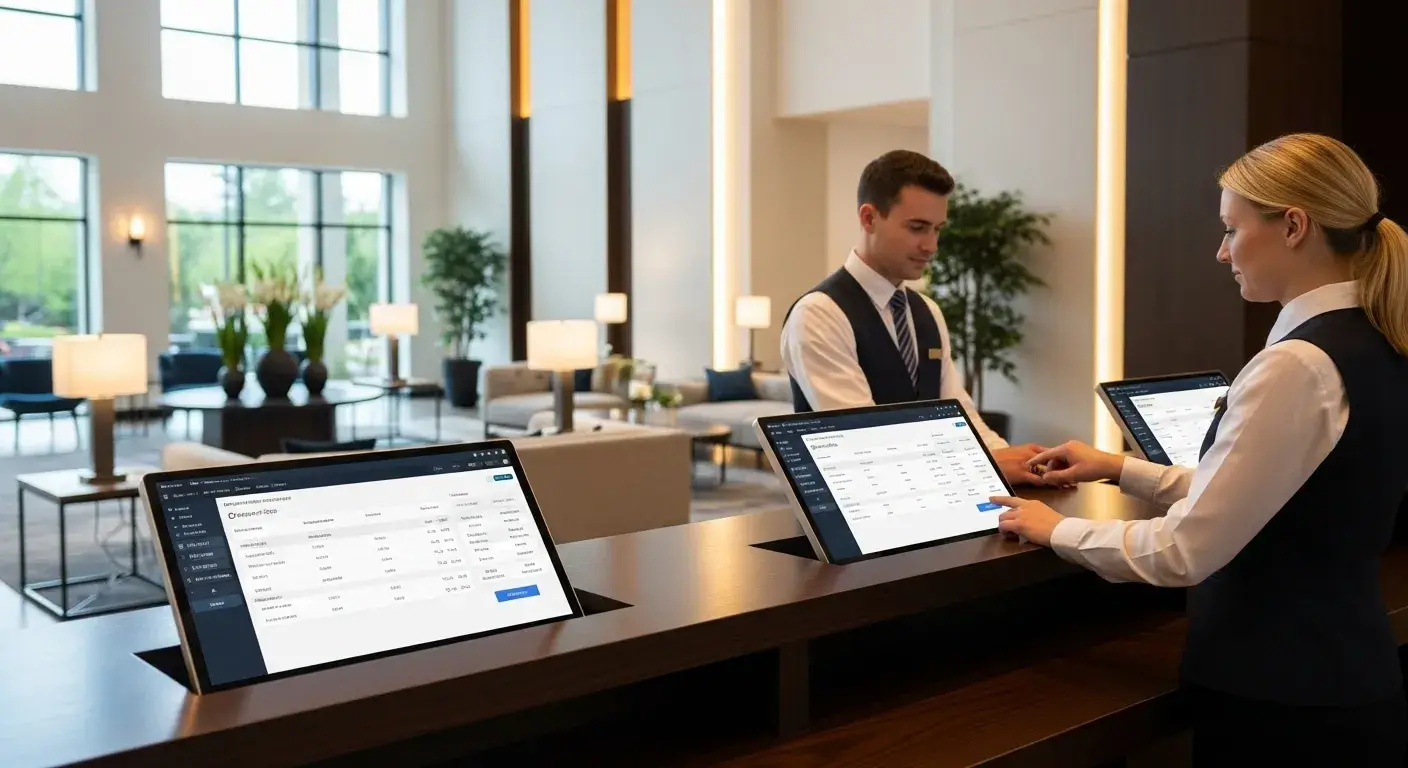
Software. Not physical supplies, but you need it.
What you can get:
- OPERA Property Management System
- Simphony Point of Sale
- Materials control
- Analytics
- They’re an Oracle partner
Why you’d use them:
- Top IT provider for hospitality
- Oracle partnership means updates and support
- Everything integrates
- Streamlines operations
What it costs:
- Depends on your size
- Usually subscription model
- Pays for itself through efficiency
Makes sense for: Hotels modernizing or chains needing standardization
How to reach them: htplglobal.com
Real talk: The analytics can catch revenue leaks fast. I’ve seen it find unbilled services within weeks.
How to Actually Choose

Here’s what works without getting too complicated:
Figure Out Your Numbers First
How many rooms? What’s your occupancy? A 50-room boutique is totally different from a 200-room resort.
Figure out what you’re using monthly:
- How often are you washing linens?
- How many guests per week × amenity cost
- What equipment breaks the most?
Helps you not over-order and gives you negotiating power.
Get Samples
Don’t order in bulk without testing. Most decent suppliers give free samples.
Test realistically:
- Wash linens a few times
- Put amenities in actual guest rooms for a week
- Run equipment during real service
Compare Actual Quotes
Send identical specs to 3-4 suppliers. Look at:
- Price (does it include delivery?)
- Minimum order (can you actually afford it?)
- Delivery time (does it work for your timeline?)
- Warranty (what’s covered?)
- Payment terms (Net 30? Need a deposit?)
Cheapest isn’t always best. You can usually negotiate 15-20% off on contracts over 6 months3.
Check If Certifications Are Real
Ask for:
- ISO quality certifications4
- GOTS for eco stuff
- Health and safety compliance
- EDB registration
Call their references. Ask specifically about delivery and how they handle problems.
Negotiate Smart
What actually works:
Bundle stuff – Order linens AND uniforms from one supplier, save about 25%5
Longer contracts – Annual deals usually knock 15-20% off
Timing – Off-peak months (May-September) can have better prices
Payment terms – Net 30 or 60 helps cash flow
Track these so you know if they’re good:
- On-time delivery (shoot for 95%)
- Defect rate (under 2%)
- How fast they respond to problems (under 24 hours)
Things to watch out
Be careful if:
- No physical location – If you can’t visit them, that’s weird
- Prices way too low – Like 40% under everyone else usually means fake or terrible quality
- No hotel references – They should easily give you 3-5 contacts
What’s Different in 2025
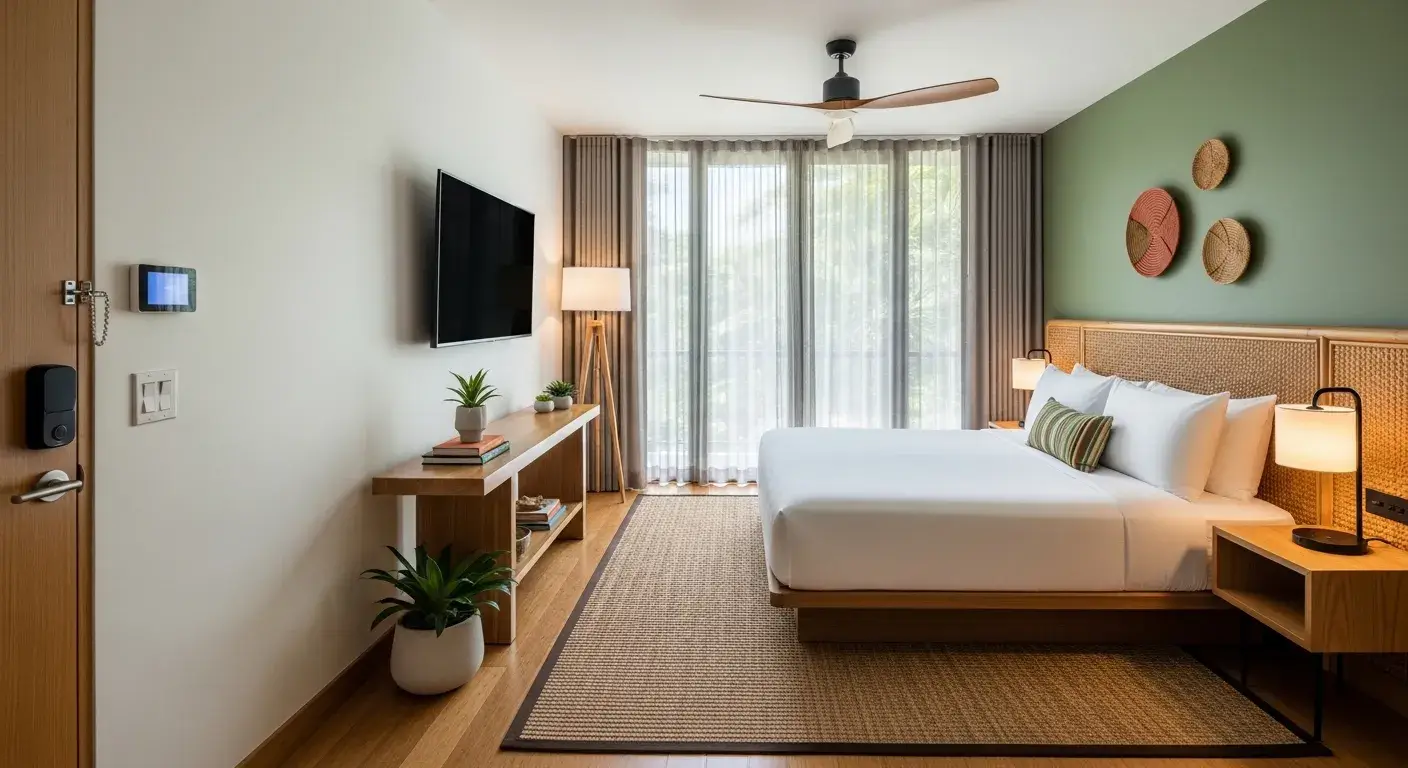
Eco Stuff Is Normal Now
Maybe 40% of suppliers have biodegradable options now. Few years ago it was maybe 15%.
Hotels with real eco-certified amenities get better reviews. Budget around 10% more for it.
Local Manufacturing Costs Less
Import duties jumped 30% last year. Made Chinese stuff expensive.
More than half of hotels prefer Sri Lankan-made now6. Also faster – days instead of weeks.
Smart Equipment Is Coming
IoT ovens and fridges that predict when they’ll break. Actually arriving here now.
Places using them save around 20% on energy. Costs more upfront but pays back in maybe 18 months.
Natural Materials Matter
Bamboo linens are growing. Guests think natural = healthier.
Breathable uniforms matter here too. Sri Lanka’s humid. Comfortable staff = better service.
Questions Everyone Asks
Who’s best for eco amenities?
Venture has GOTS certification. Zero-waste lines, bamboo toothbrushes, biodegradable packaging. Runs 40,000 to 120,000 per 100 units.
Global Hotel Supplies does natural stuff at bigger scale. They export to Maldives so you know it’s decent.
Both do custom branding.
What do linens actually cost?
150,000 to 500,000 per 100 complete sets (sheets, pillowcases, covers).
Premium Egyptian cotton is 200,000 to 500,0007. Mid-range bamboo is 150,000 to 400,000.
Order 500+ sets, you’ll probably get 20% off. Annual contracts save another 15%.
Who does custom kitchen stuff?
Legends and BlueHill both do stainless steel fabrication. Takes 2-4 weeks for standard designs.
Full kitchen runs 2 to 15 million depending on size. Both include installation and training.
Energy-efficient costs 15% more but cuts power bills 20-25%.
Uniform suppliers for small hotels?
Yeah. Look for minimums around 100-200 pieces.
Girindhi does custom embroidery, works with boutiques. Breathable cotton for the climate.
40,000 to 180,000 per 100 pieces. Order 4-6 weeks ahead for adjustments.
How do I check quality?
Do this:
- Get samples (most offer them free)
- Check EDB registration
- Ask for ISO or GOTS certificates
- Get references from similar hotels
- Do a small test order first (100-200 units)
Check hospitality Facebook groups too. Hotel managers are honest there.
Conclusion
Start with your biggest problem – linens, amenities, whatever’s breaking most. Get samples from three suppliers. Test them for real, not in some perfect scenario. Bundle your orders8 to save 25%. And when you find a supplier who actually shows up on time and fixes problems? Stick with them.
-
Official tourism statistics from the Sri Lanka Tourism Development Authority confirm strong recovery in visitor arrivals for Q1 2025, demonstrating the hospitality industry’s rebound and increasing demand for reliable hotel supplies across the island. ↩
-
The Global Organic Textile Standard (GOTS) is the worldwide leading textile processing standard for organic fibers, providing independent third-party verification of environmental and social criteria throughout the entire supply chain from raw material harvesting to final product labeling. ↩
-
Industry research on bulk purchasing strategies demonstrates that businesses can typically negotiate 15-20% discounts on contracts lasting 6 months or longer, with hospitality operators particularly benefiting from consolidated ordering and strategic supplier relationships. ↩
-
ISO 9001, ISO 14001, ISO 22000, and ISO 45001 certifications establish comprehensive quality, environmental, food safety, and occupational health standards specifically applicable to hotels and hospitality suppliers, ensuring consistent service delivery and regulatory compliance. ↩
-
Hotel procurement best practices emphasize centralizing purchasing processes and consolidating orders with preferred suppliers to capitalize on bulk discounts, with successful properties achieving 20-25% cost savings through strategic bundling of multiple product categories. ↩
-
Recent tourism industry analysis shows Sri Lanka’s hospitality sector experiencing significant growth in 2025, with rising tourist arrivals driving increased demand for local manufacturing as hotels increasingly prefer domestic suppliers due to faster delivery times and lower import duty costs. ↩
-
Hotel industry textile experts recommend Egyptian cotton bed linens with thread counts between 300-600 for optimal balance of softness, durability, and breathability, with premium long-staple cotton options withstanding significantly more wash cycles than standard alternatives. ↩
-
Top procurement strategies for hospitality leaders in 2025 include leveraging business intelligence tools for supplier evaluation, implementing automated spend analysis to control costs, and negotiating with preferred suppliers to secure bulk discounts while maintaining quality standards. ↩

